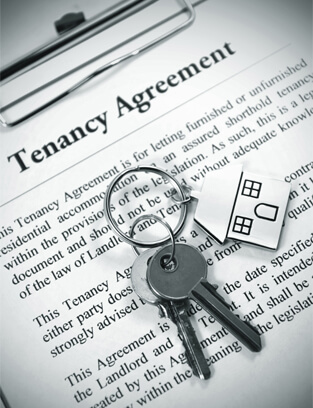Frequently Asked Questions
Letting Questions
I want to let my property. Do I need to tell my mortgage lender?
Yes. Your mortgage lender needs to give you permission before you can let your property, and they may impose special conditions. If you are buying a property with the intention of letting it out, you may be able to obtain a buy to let mortgage.
How much is the tenant’s deposit and what happens to it?
Typically this is four to six weeks’ rent and is payable upon the signing of the Tenancy Agreement. The deposit for an Assured Shorthold Tenancy (AST) should also be registered with a tenancy deposit protection scheme within 30 days.
Who will conduct viewings and do I need to be present?
There is no need for you to be present at viewings as long as you have already given us a set of keys beforehand. One of our lettings team will show prospective tenants through the property and will be on hand to answer any questions. We will then provide you with feedback afterwards.
What is an Energy Certificate (EPC) and do I need one?
It is a legal requirement for all rental properties in the UK to have an EPC. It measures the energy efficiency of a property using a scale of A-G. The certificate itself is valid for 10 years and can be used for multiple tenancies within that time. Your local office can advise on how to obtain the certificate through a qualified Domestic Energy Assessor.
Do I need any safety certificates?
Yes. Your property must have a Gas safety Certificate which needs to be renewed annually. As a landlord you have a duty of care to your tenant and we recommend that all appliances and installations are regularly checked and serviced.
How long is the tenancy and what happens afterwards?
Most tenancies will be for six or twelve months, but may be allowed to continue indefinitely if there have been no problems during the fixed term.
Do I need an Inventory and why?
To avoid misunderstandings your property (whether furnished or unfurnished), must have a full inventory of contents as this acts as a record of items in the property, together with their condition. This is visually checked then signed at the commencement of the tenancy with the Tenant.
Who is responsible for the utility bills?
In general your tenant is responsible for the utilities (unless you agree otherwise). We advise the utilities of the change of occupancy.
What happens with tenancy renewals and extensions?
We will contact you two to three months prior to the end of the tenancy to seek your instruction regarding a renewal. As we actively keep up to date with the local market we will discuss possible rent levels and negotiate any renewal or extension, documenting any new or extended terms to ensure all parties are clear with what has been agreed.
Do I need to insure a property?
As a landlord you are responsible for insuring the property and any content included with the tenancy. The tenants are responsible for insuring their own possessions. You insurance should also cover you and contain public liability insurance.
Why is it important to use an Agent that is a member of a redress body?
Salter McGuinness is a registered Agent which means we must follow the Property Ombudsman Letting Code of Practice. This sets out the framework within which registered agents must operate and the standard of service they must provide for both tenants and landlords. We are required to have professional Indemnity insurance in place along with having an in-house complaints system.
Do I require smoke alarms at my property?
Yes a smoke alarm is required on every level of your property and must be tested at the start date of the tenancy.
Do I require an HMO (house of multiple occupancy) License?
From the 6th April 2004, should a property be let to two or more households, it will be classified as an HMO. A household is defined as occupiers of the same family, including spouses, co-habitees, same sex couples, and any blood relatives. These households must occupy the premises as their sole residential dwelling, share or lack access to basic amenities. A landlord will require to have a license for the letting of a property as an HMO, should the property comprise of three or more storeys.
If you have any questions that are not answered in this section of our site please contact us on 020 8907 1222
Send us your enquiry

